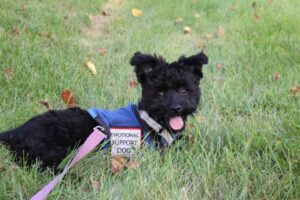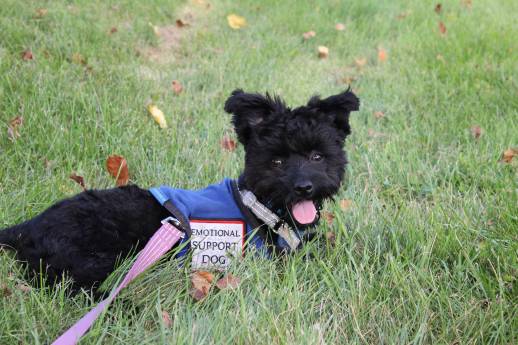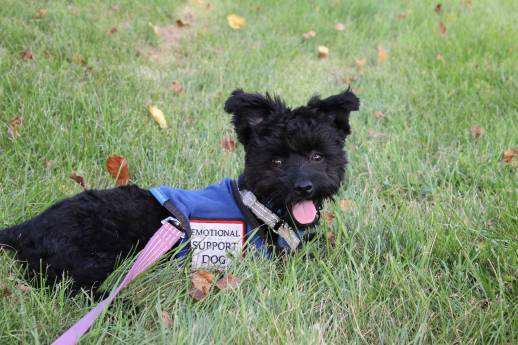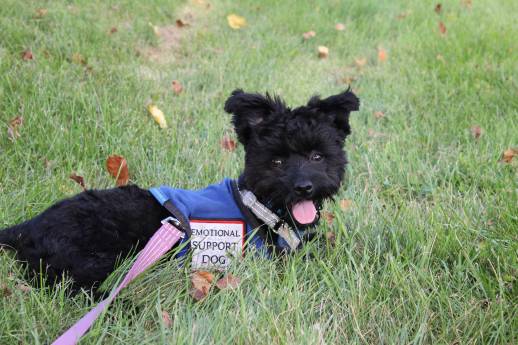Allegiant Air began flying as WestJet Express in 1997, and eventually acquired FSA and US DOT approvals in June 1998 for both regular and charter flights. Allegiant Air is licensed to operate scheduled flights within the United States as well as to operate scheduled service to Canada and Mexico.
We help people get the proper documentation to make their pet an official Emotional Support Animal. Online approval in minutes - Housing & Travel letters.
Allegiant Air is dedicated to serving people who live in cold climates, but who want to travel to warm weather tourist destinations. These destinations include places like Tampa Bay, Las Vegas, Orlando, and Los Angeles.
Allegiant flies to destinations where there are few airlines that fly directly to them, and some of those destinations are not served by any other airlines. Some of Allegiant’s markets, like Peoria, require connecting flights to an airport. Allegiant generally chooses routes that limit its competition with smaller airlines.
Allegiant Air has been around for a long time and has expanded quite significantly over this time period. This is something that does not go unnoticed by travelers. Many people believe this is because Allegiant pays their pilots less than many other airlines do, but this could also be because pilots need to be able to fly independently, so there may be some truth to this idea as well.
Why do people with disabilities needs an Emotional Support Animals when traveling?
Emotional Support Animals (ESA) are very good at helping people who have people with disabilities. They have extremely good sense and are willing to do things to make people feel comfortable. People with disabilities tend to have difficulties doing something especially when they’re traveling, but when there is an ESA that can assist them, it makes them feel good again.
Animals that give passengers the companionship they want to have to help them feel safe and comfortable are normally accepted by airlines. Airlines are required to put in place certain regulations governing the transportation of animals on board aircraft.
We help people get the proper documentation to make their pet an official Emotional Support Animal. Online approval in minutes - Housing & Travel letters.
What are Allegiant Air’s Policies regarding customers bringing their Emotional Support Animals?
DOT (Department of Transportation in U.S.) mandated airlines to accept support animals onboard aircraft as long as airlines had the appropriate paperwork. But, DOT decided that it would no longer be mandatory for carriers to permit emotional support animals on their planes starting January 21, 2021.
In response, Allegiant canceled its policy regarding the transportation of emotional support animals (ESAs) on its planes and only allowed them to transport service animals. Allegiant Air considers emotional support animals as pets as they are not eligible to be service animals.

Review symptoms, medications & behavior to keep your pets healthy with a Vet Online in just minutes.
Ask a Vet Live NowWhat are the guidelines of bringing service animals on Allegiant Air?
Some documents are needed for the approval of bringing service animals to travel with the passengers. The passenger needs a document from the trained service veterinary health form, a credible assurance for the behaviors of the service animals and some evidence that the service animal is indeed trained as a service animal. The documents need to be presented at least 45 minutes before the departure.
Each passenger is limited to 3 service animals only. Type of service animals that are allowed are dogs and cats with any type of breeds except Pit Bull. Allegiant Air has all the rights to deny the passenger’s boarding pass if the service animal shows aggressive behavior, running around and jumping on another passenger, eating the seat or trays and doesn’t want to obey their owner’s command.

Julie
Julie is a graduate of the University of North Carolina, Wilmington, where she studied Animal science. Though contrary to the opinion of her parents she was meant to study pharmacy, but she was in love with animals especially cats. Julie currently works in an animal research institute (NGO) in California and loves spending quality time with her little cat. She has the passion for making research about animals, how they survive, their way of life among others and publishes it. Julie is also happily married with two kids.
Review symptoms, medications & behavior to keep your pets healthy with a Vet Online in just minutes.
Ask a Vet Live Now




